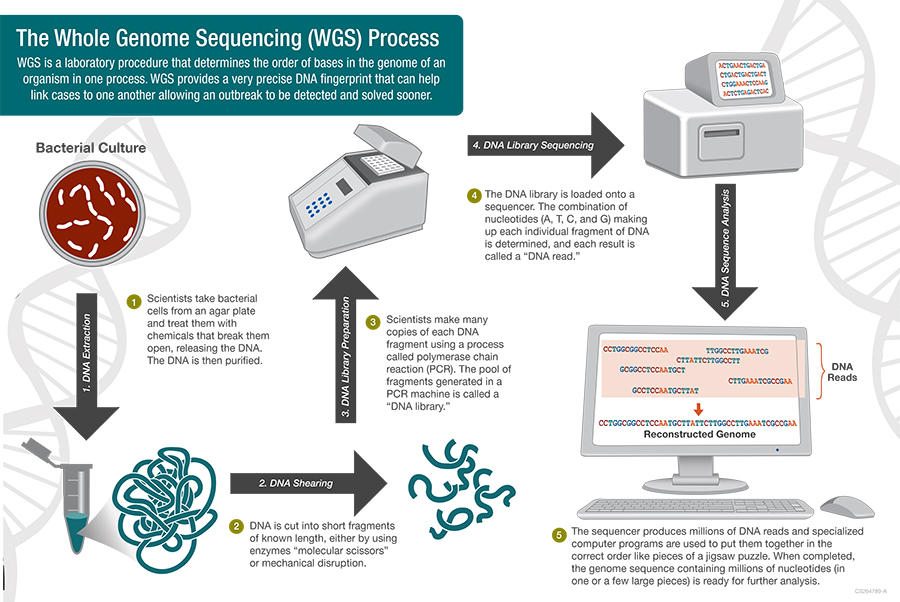Important Facts For Prelims
GenomeIndia
- 09 Apr 2025
- 5 min read
Why in News?
Nature Genetics published findings from the GenomeIndia project, which sequenced the whole genomes of around 10,000 individuals from 85 distinct populations groups (32 tribal and 53 non-tribal), covering major ethnic groups across India.
- The study identified 180 million genetic variants, including 130 million on autosomes (non-sex chromosomes) and 50 million on sex chromosomes (X and Y).
- Some variants are disease-linked, some are rare, others are unique to India or specific communities.
What is the GenomeIndia Project?
- About: Launched in 2020 by the Department of Biotechnology (DBT), the Genome India Project aims to map the genetic diversity of the Indian population.
- Over 20 leading institutions, including Indian Institute of Science's Centre for Brain Research, Centre for Cellular and Molecular Biology, and National Institute of Biomedical Genomics, collaborated to sequence 10,000 genomes in the project’s first phase.
- The core objective is to build a comprehensive Indian reference genome.
- IBDC: The genome data is stored in the Indian Biological Data Centre (IBDC), which is India’s first national life science data repository, established at Regional Centre of Biotechnology (RCB), Faridabad with support from DBT and in collaboration with National Informatics Centre (NIC).
- Significance: The initiative addresses the underrepresentation of Indian genomes in global databases, thereby enhancing India's standing in international genomics research.
What are the Other Key Genome Sequencing Initiatives?
- IndiGen Programme: Launched by Council of Scientific & Industrial Research (CSIR) in 2019, successfully sequenced the whole genomes of 1029 Indians and identified 55.9 million single nucleotide variants, of which 18 million (~32%) were unique to Indian genomes.
- One Day One Genome Initiative: Launched in 2024 by DBT, aims to sequence and publicly release one bacterial genome daily to showcase India's microbial diversity.
- Global Alliance for Genomics and Health (GA4GH): Established in 2013, GA4GH is a non-profit international alliance that sets standards to promote the use of genomic data within a human rights framework.
- Human Genome Project: It was coordinated by the US and operated from 1990 to 2003, providing researchers with fundamental information about the genetic makeup of the human organism.
What is Genome Sequencing?
- Genome: It refers to the entire set of genetic material (Deoxyribonucleic acid (DNA) in most organisms; Ribonucleic acid (RNA) in some viruses) present in an organism.
- It contains all the biological instructions required for an organism’s development, functioning, and survival.
- Genome Sequencing: It is the process of determining the complete sequence of nucleotide bases (Adenine (A), Cytosine (C), Guanine (G), Thymine (T), and Uracil (U)) in an organism’s genome.
- It can include whole-genome, partial genome, or targeted gene sequencing
- Whole Genome Sequencing (WGS): Used to determine the complete DNA sequence of an organism's genome at a single time, identifying the exact order of all the nucleotide bases across the entire genome.
- It provides the most comprehensive genetic blueprint of an organism.
UPSC Civil Services Examination, Previous Year Questions (PYQs)
Q1. With reference to agriculture in India, how can the technique of ‘genome sequencing’, often seen in the news, be used in the immediate future? (2017)
- Genome sequencing can be used to identify genetic markers for disease resistance and drought tolerance in various crop plants.
- This technique helps in reducing the time required to develop new varieties of crop plants.
- It can be used to decipher the host-pathogen relationships in crops.
Select the correct answer using the code given below:
(a) 1 only
(b) 2 and 3 only
(c) 1 and 3 only
(d) 1, 2 and 3
Ans: (d)





